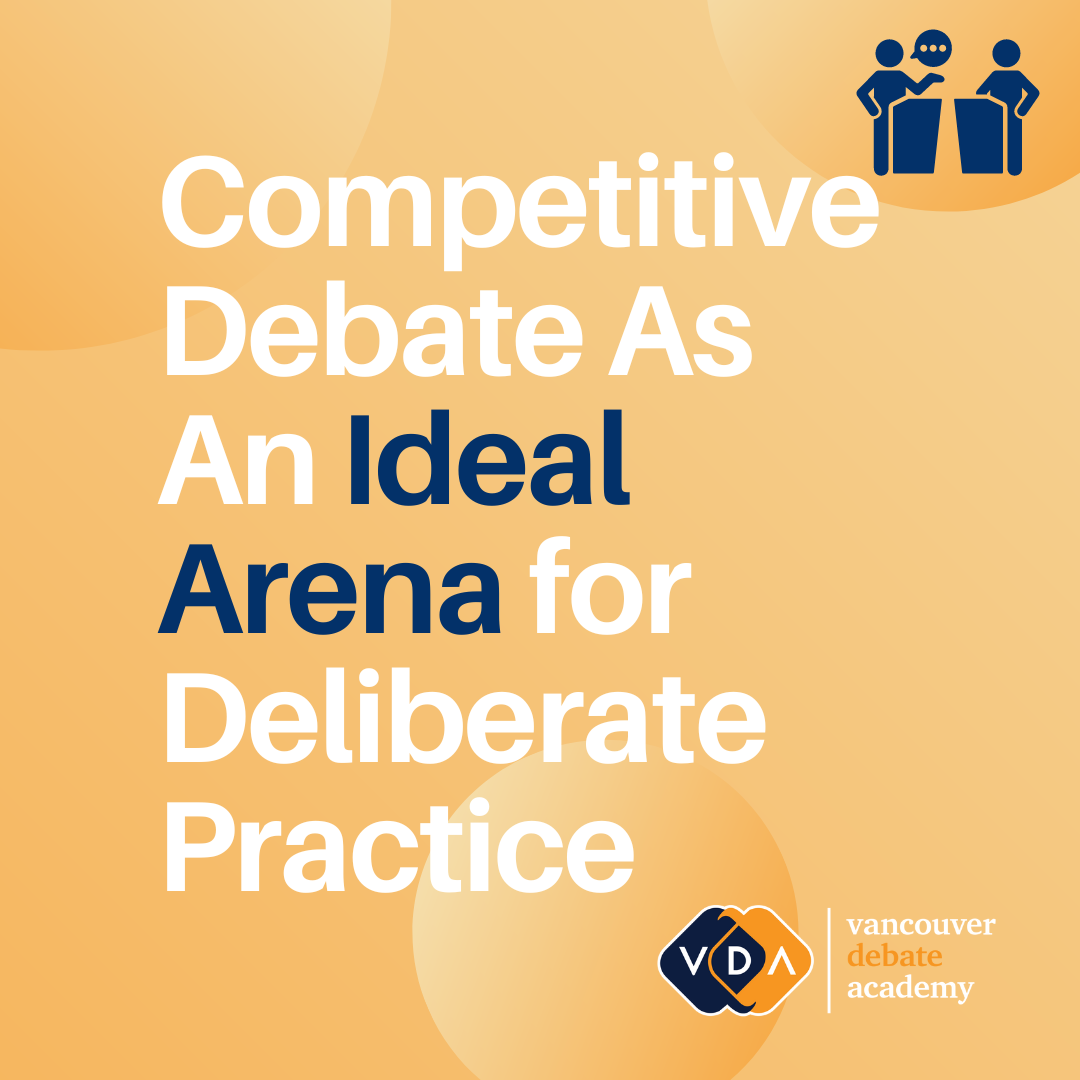Competitive Debate As An Ideal Arena for Deliberate Practice

Competitive debate is an intellectual sport that perfectly embodies the principles of deliberate practice, making it an ideal field for rapid skill development. Anders Ericsson defines deliberate practice as a structured and focused method of skill enhancement characterised by being goal-oriented, having expert instruction, and immediate feedback. Debate also fits the fundamental criteria of a field conducive to deliberate practice: having objective measures of performance, optimal challenges, and a rich history of expertise development. Here’s an in-depth look at how competitive debate naturally aligns with this framework.

Objective Measures of Performance
In competitive debate, success is quantifiable through wins and losses, providing clear and objective benchmarks of proficiency. Each debate round serves as a concrete evaluation of a debater’s performance, where judges evaluate debaters based on specific criteria such as argumentation, evidence, and presentation skills. The structured assessments align perfectly with Ericsson’s emphasis on measurable outcomes, as tangible assessment procedures allow debaters to set goals, stay motivated, and accurately identify strengths and weaknesses. Debaters therefore have a precise understanding of their progress and the areas that require further development, fostering a focused approach to improvement.
Optimally Challenging
The competitive nature of debate creates an environment of optimal challenge, critical for effective improvement in deliberate practice. Debaters are constantly pushed to their limits through structured ranking and “breaking” in tournaments. They strive for excellence against worthy opponents but never face competitors too far beyond their ability, as pairings match teams with similar win-loss records; this pursuit of victory embodies the deliberate practice paradigm, where the optimal challenge is neither too high nor too low. Debaters engage in a continuous cycle of preparation and reflection, with each debate round presenting new insights and learning opportunities, adapting to various debate topics. This constant state of optimal challenge is a key trait for a field of deliberate practice, fostering resilience and adaptability.
Rich History and Developed Expertise
Competitive debate has a rich history with well-established rules and formats that create a structured environment for skill development, but more importantly, for the development of expertise. The evolution of debate as a discipline ensures the presence of experts (coaches) who have tested previous methods and strategies, guiding students with the most effective practice activities for continuous improvement. Experts who have achieved mastery in the field, including experienced debaters, coaches, and educators, serve as mentors that share strategies to help aspiring debaters develop their skills. The expert instruction aligns with Ericsson’s emphasis on facilitating the deliberate practice that leads to expert performance.

In conclusion, competitive debate serves as an ideal platform for deliberate practice, adhering to Anders Ericsson’s principles. With clear performance metrics, optimal challenges, and a rich history fostering expert guidance, debaters engage in a cycle of continuous improvement. This structured approach underscores the transformative potential of deliberate practice in achieving mastery.

